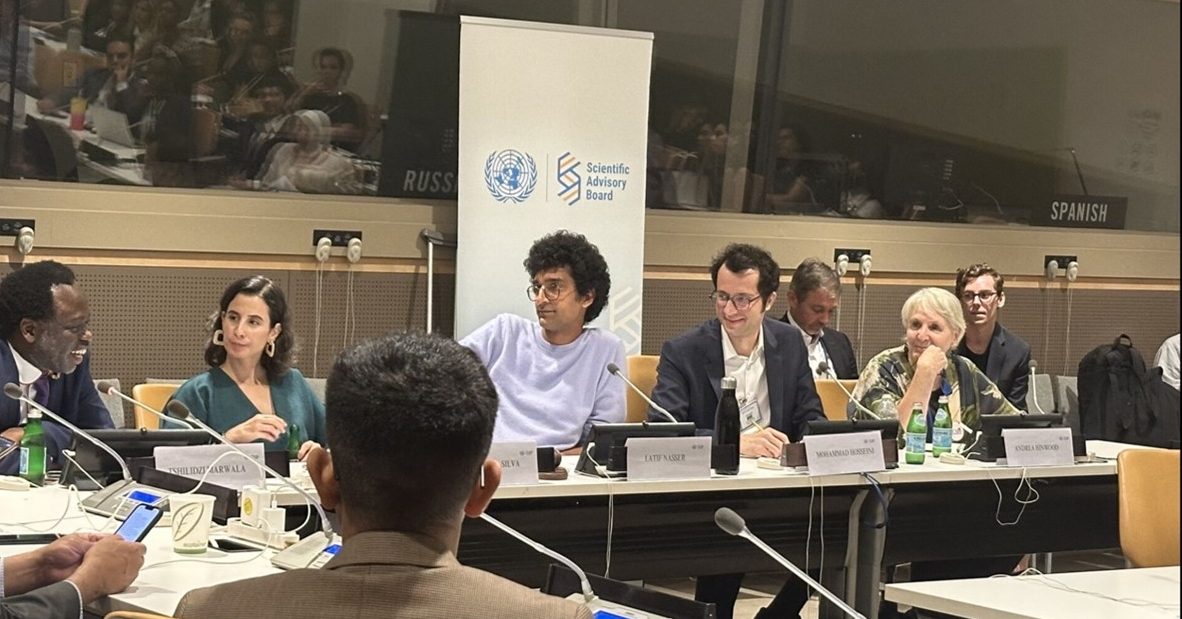Mohammad Hosseini (Northwestern University, United States) represented the GYA and International Science Council (ISC) delegation attending the Summit of the Future Action Days in the United Nations headquarters in New York City. This event provided “an opportunity for broad engagement and inclusion,” especially for the youth to play a role in “shaping the Pact for the Future” and its third and fourth chapters focused on “Science, technology and innovation and digital cooperation” and “Youth and future generations”.
In a panel discussion entitled “Activating Young Scientists for Trust in Science” moderated by Latif Nasser (Director of Research and co-host at Radiolab), Mohammad provided a refreshing view about trust in science. He made a distinction between trusting the “industry of science” and “a scientific mentality,” suggesting that the latter is more inclusive because it allows advocating for “indigenous science, tribal and local science and citizen science.” He added that the industry of science is intertwined with financial interests that may not necessarily serve the interests of citizens. Highlighting the GYA-supported project on ethics dumping, he added that some individuals and communities who do not trust science, especially in low-/middle-income countries, are those who have been harmed by unethical and exploitative research practices, and advocated for more transparency on the side of institutions (e.g., in reporting cases of misconduct) and educating young scholars to better communicate their science.
Later and during the side event on “Building Bridges through Science Diplomacy: Accelerating progress toward sustainable development,” Mohammad delivered a statement on behalf of the ISC and GYA. He highlighted challenges involved in building bridges with scholars who are based in countries that are currently excluded from the global scene due to international and unilateral sanction. He also highlighted challenges of international mobility for young scholars as a barrier to building bridges among scholars and used the GYA AGM and members’ visa issues as an example.
GYA’s presence at the “Summit of the Future” was a unique opportunity to share the views of young scholars regarding pressing challenges and bridging the gap between knowledge and action in governance. The summit’s commitments to the Sustainable Development Goals (SDGs) and the UN Charter, emphasized the critical role of science in evidence-based decision-making, diplomacy, and advancing multilateral solutions.
Mohammad wasn’t the only GYA representative involved with the Science Summit. Executive Committee member Justine Germo Nzweundji (Institute of Medical Research and Medicinal Plants Studies/ Ministry of Scientific Research and Innovation, Cameroon) participated in a panel discussion on the potential impact of the next generation on the post-SDG landscape. And in the lead up to the Summit of the Future, GYA Co-Chair Yensi Flores Bueso (University College Cork/University of Washington in Seattle, Ireland/United States) joined the United Nations Secretary-General’s Scientific Advisory Board at UN Headquarters for its inaugural in-person retreat. You can read a report on Yensi’s contributions during the retreat here.
